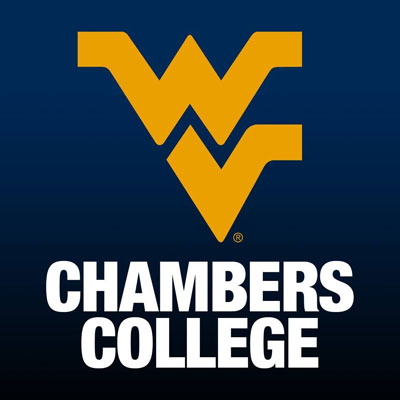One thing Mountaineers pride themselves on is being active. And Dr. Bryam McCannon, assistant professor of economics at the West Virginia University College of Business and Economics and affiliated faculty member with the WVU Center for Free Enterprise, has taken note.
“The people are active, so it’s easy to walk around the halls and ask somebody about some research idea they have or bounce ideas off them. It’s fun having a seminar series, the brown bag, and bringing in lots of other folks. The students have been wonderful. I’ve enjoyed working with the grad students,” he said.
And his colleagues have noticed that he has enhanced the activity and energy of the College and the Department of Economics with his recent appearance as a nominee in WVU’s Climb Higher and, specifically, through his abundance of research projects.
McCannon’s passion for his research is what drove him to leave his position of chair of the finance department at St. Bonaventure University in New York and take on a new role here at B&E. With WVU’s recent classification as an R1, or highest research activity university by the Carnegie Classification of Institutions of Higher Education, WVU is the perfect fit.
“It was opportunity to be in a research department with grad students. I had always been at small liberal arts-type places, where the focus was 100 percent on undergraduate teaching,” he said. “That’s fun, but I thought it would be awesome to have a chance to have grad students in the Ph. D. program and be around faculty who are very active in research.”
McCannon earned his Ph.D. from Penn State in 2003, and his research focused in two areas: law and economics, and behavioral economics. He said he uses economics tools to study the legal system and incentives of prosecutors. His interests also lie in more realistic frameworks of how people actually interact with one another, maybe in economic settings.
“My research interests have morphed over time. When I was in grad school, nobody was doing work in law and economics. It really didn’t exist. Behavioral economics, we had heard the term. Nobody really knew about it,” he said. “And we heard that some people did laboratory experiments, but we didn’t see any of that stuff. Everything I do now didn’t really exist or wasn’t a part of our curriculum when I was in grad school.”
With his motivation for research, he always has numerous innovative projects going on at one time. One of his current projects is a microfinance project based in southern, rural Uganda with the nonprofit organization Embrace It Africa. The microfinance wing of this is called Mikwano Microfinance.
“A friend of mine that I got to know as an undergrad started a nonprofit organization in Uganda. He was actually looking for the area of the world that was hit the worst by the AIDS epidemic. He started this nonprofit 10 years ago basically connecting U.S. donors to this orphanage-turned-boarding school in southern Uganda. It is rural. It is probably 20 kilometers from the nearest paved road,” he said.
Over the years, the organization has expanded its services to providing shelters to children who lost their parents due to the AIDS epidemic, and then also providing these children with education with the development of a boarding school. With these new services, it is important to think about jobs and building up the economy. This is where McCannon steps in.
“They had an off branch called Mikwano Microfinance. Mikwano is Lugandan for friendship. What they do is fundraising and make these microloans to entrepreneurs in the area, anyone who is trying to get their business started. There is also academic debate about how effective microfinance loans are in the poorest parts of the worlds. There’s all this promise that if you can provide a little bit of capital that will get some businesses started, get some capital accumulated, that will cut down the amount they have to borrow from loan sharks and that kind of stuff. It gives them opportunities and more affordable financing, and then allows them to move toward self-sufficiency. The other side of the argument asks if there is really kind of lacking a lot of evidence of this really being effective. They say, ‘Maybe insurance is what they need, not loans.’ It’s a pretty active debate,” McCannon said.
In January 2016, McCannon and his wife made the trip to rural Uganda for “lab in the field.”
“We took the economics of the lab to southern rural Uganda, and we played games with people in the area. Simple economic games, games designed to force people to have a trade-off between wealth for themselves versus wealth for others. They can engage in activities that grow group wealth and maybe only have small benefit to themselves or personal benefit with no gain to other people,” he said. “Simple economic tradeoff between self and others, and then we can get background information on them and what their live experiences are like to see what correlates, which was super fun. It was a pretty wild experience for my wife and me. We are not used to third world, undeveloped, poverty-stricken areas. We have two working papers that came from that.”
With the Fall 2016 semester underway, the economist is also focused on activities within the Center for Free Enterprise, working on research with Ph.D. students and teaching his first micro-theory course.
“I’m excited this year that I will be teaching the first micro-theory course for the Ph.D. students. It will be my first foray into Ph.D. level teaching, which I’m pretty stoked about. Obviously, you bring in a brand new faculty member, there’s a lot of transition the first year, so you keep the teaching level to not be too strenuous. I was thankful for that,” McCannon said.

